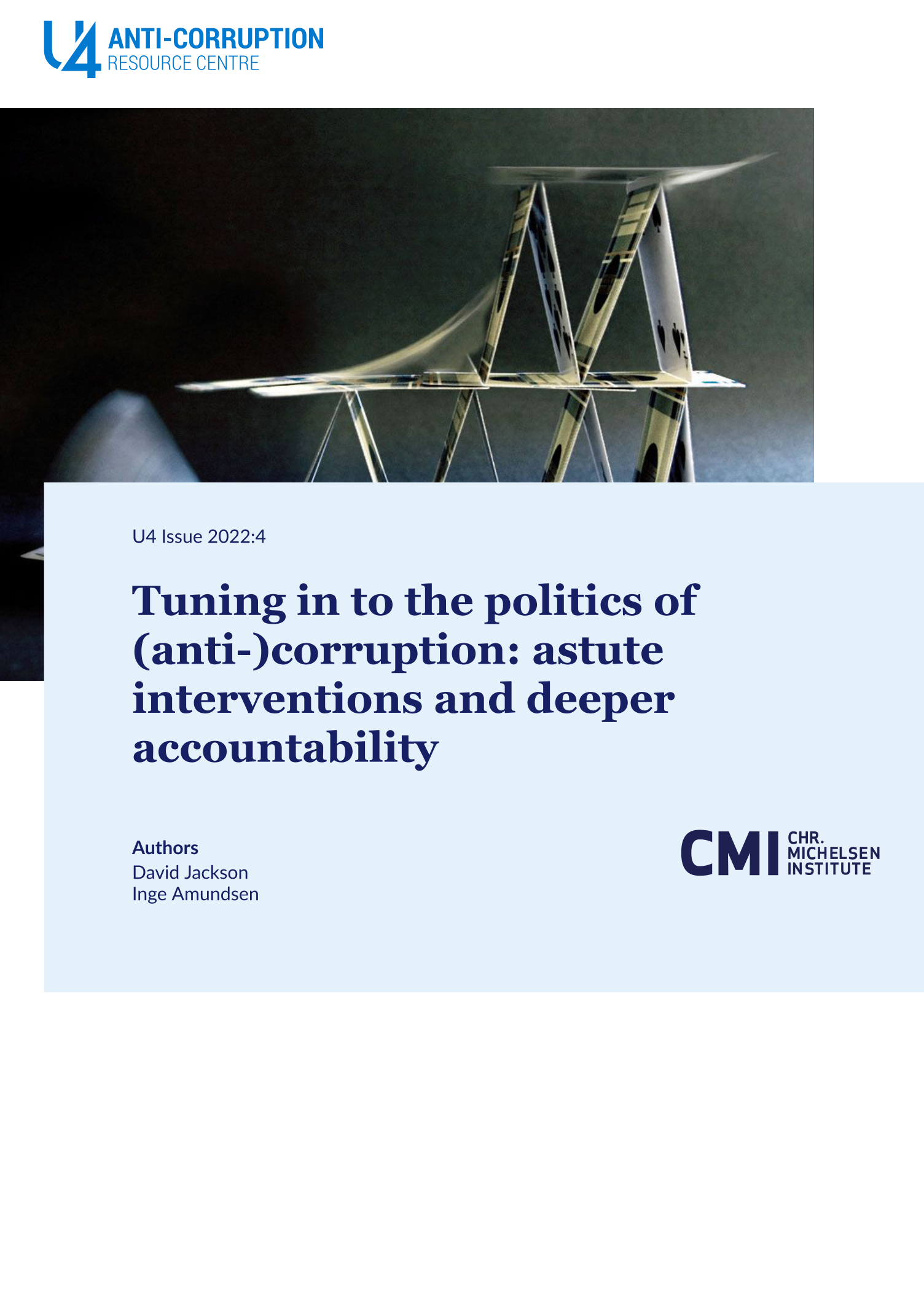Main points
- When corruption is politicised, it becomes embedded in how politics functions. Corrupt acts are used to extract resources from the public coffers, which are then reinvested in the structures, networks and tactics that politicians use to maintain and extend their hold on power.
- Politicised corruption relies on networks, with key players at the highest levels – politicians, government ministers, senior civil servants – but also unelected businesspeople, military leaders, senior bureaucrats, or figures from organised crime. Networks can also operate at lower levels of administration, in education, health or taxation. And political corruption can flourish in informal policy arenas, where corrupt acts are hidden from the public.
- The structures of politicised corruption can span national boundaries, sometimes facilitated by corporations and banks operating from the Global North. And corrupt elites can be strengthened by the flow of development aid from external donors.
- Anti-corruption can also be politicised. Interventions can be counterattacked; corrupt politicians will fight back, using various tactics to hijack the anti-corruption agenda, to tarnish opponents, remove institutional checks, and threaten reform campaigners. Therefore, anti-corruption initiatives must be more astute in areas where corruption is highly embedded in the political system.
- We suggest a two-pronged approach to avoiding the risks of politicisation: 1) direct intervention – targeting the most feasible reform areas, mobilising beneficiaries, and building new skills and capacity to support anti-corruption efforts; 2) indirect reforms to build more astute accountability through: access to information; new forms of collective action; and smart sanctions.
- Anti-corruption practitioners must adopt a multi-sectoral agenda. They need to get involved with those promoting democracy, and develop platforms for broad-based collaboration in sectors such as welfare, media support, information and communications technology, and infrastructure development.
